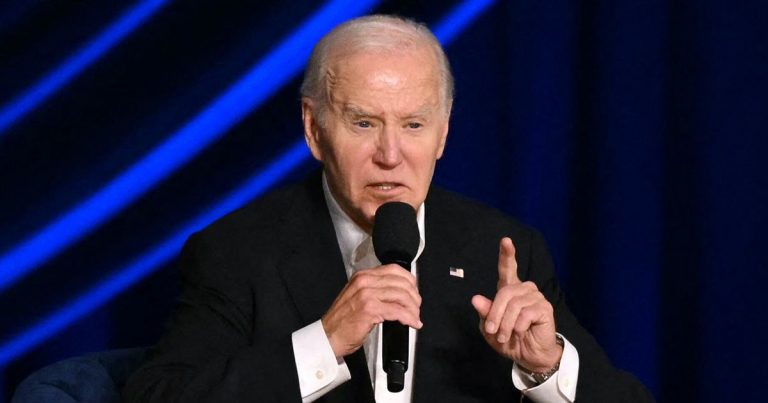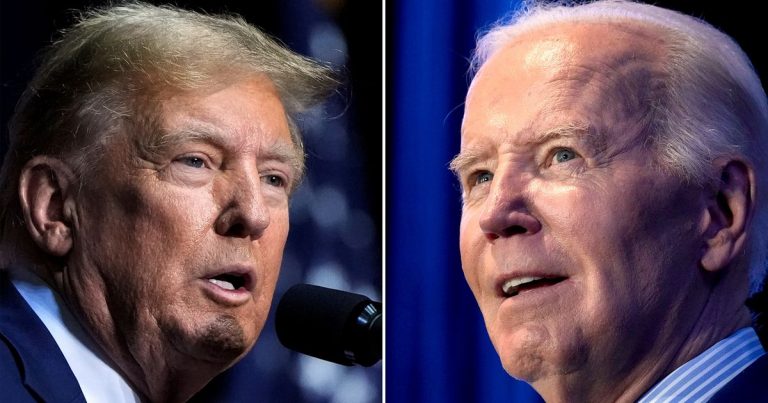Third person leaves Biden administration because of Gaza policy.
In 2020, Maryam Hassanein cast a ballot for Joe Biden in the first presidential election she was old enough to vote in because she felt he represented “hope” and a chance of “justice for Muslim Americans and for marginalized communities as a whole.” On Tuesday, Hassanein became the latest member of the Biden administration to publicly quit over the president’s policy in the Gaza war — and the youngest known resignee so far, at 24.
She described quitting as a way “to leverage privilege” to make a statement against Biden’s support for Israel’s military campaign in the Gaza Strip, which has killed close to 38,000 people, displaced the vast majority of Gaza’s residents and plunged the region into a humanitarian crisis.
Hassanein was one of hundreds of political appointees in the administration, which has put a major emphasis on diversity in its ranks. A Muslim American, she is the third known appointee to quit over Gaza following Lily Greenberg Call, a Jewish American appointee also formerly of the Interior Department, and Tariq Habash, a Palestinian American who worked at the Department of Education.
“Marginalized communities in our country have long been denied the justice they deserve. I joined the Biden-Harris administration with the belief that my voice and diverse perspective would lend a hand in the pursuit of that justice,” Hassanein argued in a statement about her resignation. “Through their policy choices and dehumanization of Arabs and Muslims, it has become clear to me that I do not have a place in this administration.”
Spokespeople for the White House and the Interior Department did not respond to requests for comment.
During the last election, she worked to build support for the then-Democratic presidential candidate among her family, “not one that votes every single election,” and her friends in Arizona — a state that was essential to Biden winning the presidency.
“I was very, very passionate,” Hassanein said, citing the experience of living through the openly anti-Muslim Donald Trump presidency.
She was working for Rep. Glenn Ivey (D-Md.) on Capitol Hill when the war began. As conditions in Gaza deteriorated, she believed the administration “would be moved to act” and put an end to the conflict. She joined Biden’s staff in January.
Yet she found “a huge culture of silence” among most of her fellow appointees and colleagues at the Interior Department about the war, in which she felt they were all implicated. She felt a “disconnect” between their work and the evidence of devastation in Gaza she was regularly seeing.
“Our very being here, especially as Biden-Harris appointees, makes us complicit as we allow things to continue running as normal when this genocide is anything but normal,” Hassanein said in her statement.
“I saw these students, who have worked so hard for what they have had up until this point, willing to sacrifice their academic and personal careers for Palestinian liberation. And so, here I am, inspired by the students to also sacrifice what I have worked toward,” Hassanein said in her statement.
Hassanein also described her Muslim identity as significant in her decision. She put the U.S. role in Gaza in the context of a problematic broader American approach to the Muslim-majority world and the human rights of groups within it, particularly Palestinians.
“Instead of using U.S. leverage to stop the killing, President Biden has continued funding this violence, while fueling hate crimes against Palestinian Americans by repeating racist tropes and outright lies,” Hassanein wrote, in reference to multiple alleged hate crimes since Oct. 7. “Anti-Arab and Islamophobic sentiments are embedded into our foreign policy and are inextricably linked with the grotesque disregard for Palestinian lives.”
Some prominent Arab and Muslim American activists in the Democratic Party have led an “uncommitted” movement to deny Biden the support of the community unless he changes course on Gaza. Saying she is still “grappling” with whether Biden could win her backing, Hassanein argued “doubling down” on support for Israel “is not going to help” with Muslim voters.
For all that Hassanein’s identity factored into her decision, she hopes her move has a broader resonance with her former colleagues experiencing what she called a “moral dilemma.”








